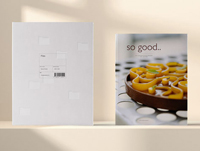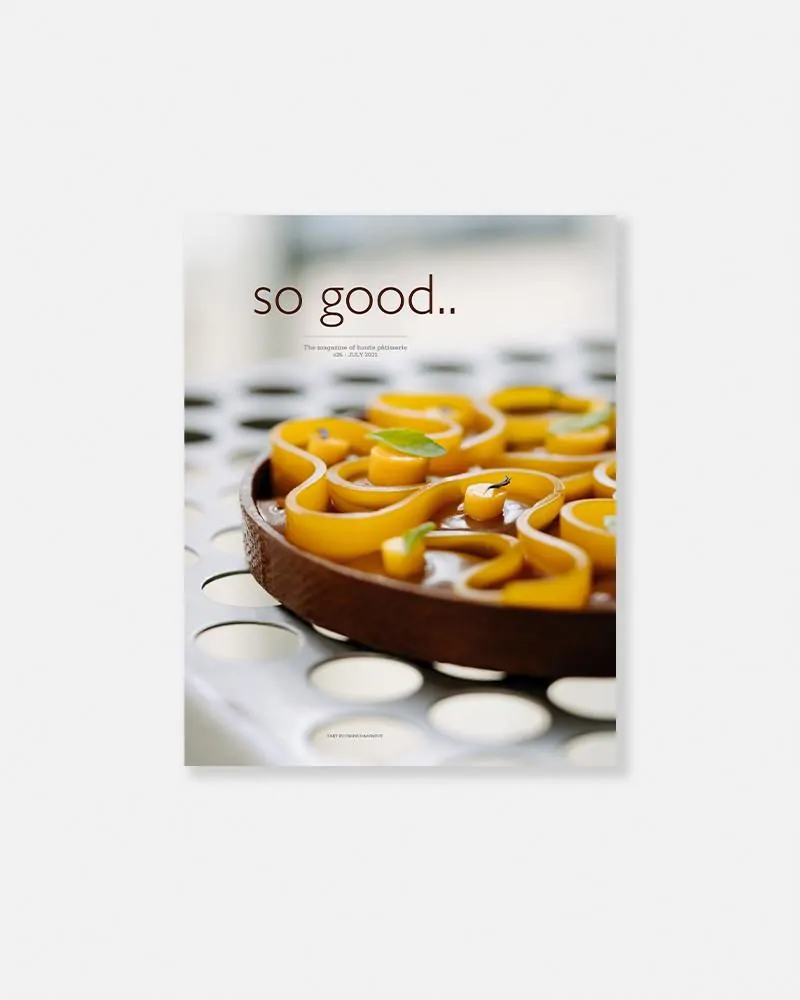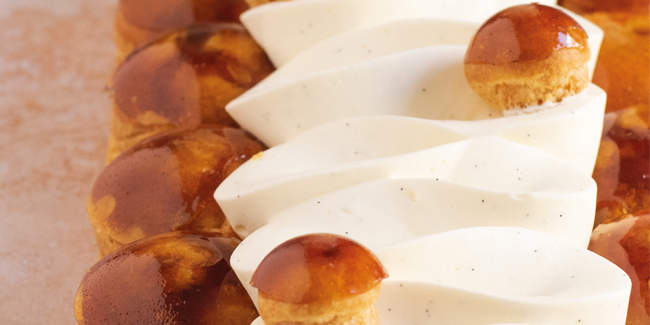Ramon Morató dedicates a whole chapter of his new book, Files (available at booksforchefs.com), to analyze how the crises we suffer and the consequent transformation of habits determines and, above all, will determine the pastry of tomorrow. Everything indicates that consumption will be more ethical, more supportive, more responsible, and more ecological, that we will give greater value to local ingredients, that domestic consumption will increase, or that we will demand more personalization in everything we buy.
The author, in the chapter called Pastry & Anthropology, comes up with a hypothetical case in which six diners gather to enjoy a celebration cake and each of them presents a “condition” or requirement motivated by ideological or medical issues, such as veganism, plant-based, or intolerances to gluten, lactose, or nuts. The solution seemed clear, to create a unique cake that would respond to all these particularities. But then, Morató realizes that perhaps he is forgetting someone important. “What do we do with those diners who want to continue consuming a classic pastry, made from the usual ingredients or who simply do not have any allergies? Aren’t we discriminating against them?”, he wonders.
The final solution is to create the cake of cakes, that is to say, six apparently identical cakes but different in their composition. They all share flavors and presentation, but each one caters to the needs of a specific diner (vegan, plant-based, gluten-free…) and is identified through a letter or a brand so that each person can find their own. In this ingenious way, the six friends will enjoy the celebration and the act of sharing, since they will all apparently be eating the same thing but each one will be meeting their expectations. With this example, Morató invites us to reflect on the complex panorama that many pastry chefs are already facing today, with an increasingly wide typology of customers, whether in a shop, in a restaurant, or in a hotel.
But we want to purposely stay on that consumer who wants his cake to continue to taste of butter and almonds, who in their mousse wants to appreciate the characteristic creaminess that the cream provides, and who of course expects their bite to be sweet, as it always has been. For how much pastry owes this consumer historically, let’s not forget the omnivore, the enjoyment, the consumer with a sweet tooth, and the one who has decided to live on the more pleasant side of life.





